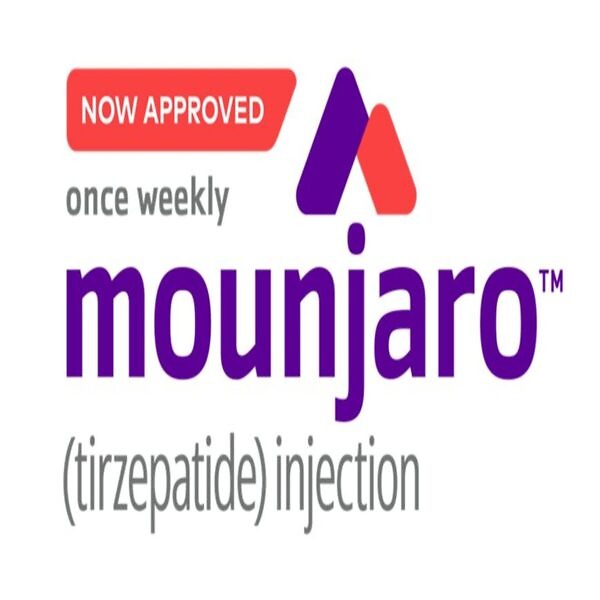PROCORALAN IVABRADINE 7.5mg TABLETS, 56 Tablets
Procoralan ivabradine tablets is a heart medicine
£60.26
CompareCompare- Description
- Additional Information
- Brand
- How To Use
- Product Details
- Side effects
- Reviews (0)
- Questions & Answers
PROCORALAN IVABRADINE 7.5mg TABLETS, 56 Tablets
What PROCORALAN IVABRADINE 7.5mg TABLETS is and what it is used for
Procoralan (ivabradine) is a heart medicine used to treat:
- Symptomatic stable angina pectoris (which causes chest pain) in adult patients whose heart rate is over or equal to 70 beats per minute. It is used in adult patients who do not tolerate or cannot take heart medicines called beta-blockers. It is also used in combination with beta-blockers in adult patients whose condition is not fully controlled with a beta-blocker.
- Chronic heart failure in adult patients whose heart rate is over or equal to 75 beats per minute. It is used in combination with standard therapy, including beta-blocker therapy or when beta-blockers are contraindicated or not tolerated.
About stable angina pectoris (usually referred to as “angina”):
Stable angina is a heart disease which happens when the heart does not receive enough oxygen. It usually appears between 40 and 50 years of age. The most common symptom of angina is chest pain or discomfort.
Angina is more likely to happen when the heart beats faster in situations such as exercise, emotion, exposure to the cold or after eating. This increase in heart rate can cause the chest pain in people who suffer from angina.
About chronic heart failure:
Chronic heart failure is a heart disease which happens when your heart cannot pump enough blood to the rest of your body. The most common symptoms of heart failure are breathlessness, fatigue, tiredness and ankle swelling.
How does Procoralan work?
Procoralan mainly works by reducing the heart rate by a few beats per minute. This lowers the heart’s need for oxygen especially in the situations when an angina attack is more likely to happen. In this way Procoralan helps to control and reduce the number of angina attacks.
Furthermore as elevated heart rate adversely affects the heart functioning and vital prognosis in patients with chronic heart failure, the specific heart rate lowering action of ivabradine helps to improve the heart functioning and vital prognosis in these patients.
| Brand | |
|---|---|
Brand
PROCORALAN
How To Use
How To Use
How to take Procoralan Ivabradine 7.5mg Tablets
Always take this medicine exactly as your doctor or pharmacist has told you. Check with your doctor or pharmacist if you are not sure.
Procoralan should be taken during meals.
If you are being treated for stable angina pectoris
The starting dose should not exceed one tablet of Procoralan 5 mg twice daily. If you still have angina symptoms and if you have tolerated the 5 mg twice daily dose well, the dose may be increased. The maintenance dose should not exceed 7.5 mg twice daily. Your doctor will prescribe the right dose for you. The usual dose is one tablet in the morning and one tablet in the evening. In some cases (e.g. if you are elderly), your doctor may prescribe half the dose i.e., one half 5 mg tablet of Procoralan 5 mg (corresponding to 2.5 mg ivabradine) in the morning and one half 5 mg tablet in the evening.
If you are being treated for chronic heart failure
The usual recommended starting dose is one tablet of Procoralan 5 mg twice daily increasing if necessary to one tablet of Procoralan 7.5 mg twice daily. Your doctor will decide the right dose for you. The usual dose is one tablet in the morning and one tablet in the evening. In some cases (e.g. if you are elderly), your doctor may prescribe half the dose i.e., one half 5 mg tablet of Procoralan 5 mg (corresponding to 2.5 mg ivabradine) in the morning and one half 5 mg tablet in the evening.
If you take more Procoralan than you should:
A large dose of Procoralan could make you feel breathless or tired because your heart slows down too much. If this happens, contact your doctor immediately.
If you forget to take Procoralan:
If you forget to take a dose of Procoralan, take the next dose at the usual time. Do not take a double dose to make up for the forgotten dose.
The calendar printed on the blister containing the tablets should help you remember when you last took a tablet of Procoralan.
If you stop taking Procoralan:
As the treatment for angina or chronic heart failure is usually life-long, you should discuss with your doctor before stopping this medicinal product.
If you think that the effect of Procoralan is too strong or too weak, talk to your doctor or pharmacist.
If you have any further questions on the use of this medicine, ask your doctor or pharmacist.
Product Details
Product Information
What you need to know before you take Procoralan
Do not take Procoralan
- if you are allergic to ivabradine or any of the other ingredients of this medicine (listed in section 6);
- if your resting heart rate before treatment is too slow (below 70 beats per minute);
- if you are suffering from cardiogenic shock (a heart condition treated in hospital);
- if you suffer from a heart rhythm disorder;
- if you are having a heart attack;
- if you suffer from very low blood pressure;
- if you suffer from unstable angina (a severe form in which chest pain occurs very frequently and with or without exertion);
- if you have heart failure which has recently become worse;
- if your heart-beat is exclusively imposed by your pacemaker;
- if you suffer from severe liver problems;
- if you are already taking medicines for the treatment of fungal infections (such as ketoconazole, itraconazole), macrolide antibiotics (such as josamycin, clarithromycin, telithromycin or erythromycin given orally), medicines to treat HIV infections (such as nelfinavir, ritonavir), nefazodone (medicine to treat depression) or diltiazem, verapamil (used for high blood pressure or angina pectoris);
- if you are a woman able to have children and not using reliable contraception;
- if you are pregnant or trying to become pregnant;
- if you are breast-feeding.
Warnings and precautions
Talk to your doctor or pharmacist before taking Procoralan
- if you suffer from heart rhythm disorders (such as irregular heartbeat, palpitation, increase in chest pain) or sustained atrial fibrillation (a type of irregular heartbeat), or an abnormality of electrocardiogram (ECG) called ‘long QT syndrome’;
- if you have symptoms such as tiredness, dizziness or shortness of breath (this could mean that your heart is slowing down too much);
- if you suffer from symptoms of atrial fibrillation (pulse rate at rest unusually high (over 110 beats per minute) or irregular, without any apparent reason, making it difficult to measure);
- if you have had a recent stroke (cerebral attack);
- if you suffer from mild to moderate low blood pressure;
- if you suffer from uncontrolled blood pressure, especially after a change in your antihypertensive treatment;
- if you suffer from severe heart failure or heart failure with abnormality of ECG called ‘bundle branch block’;
- if you suffer from chronic eye retinal disease;
- if you suffer from moderate liver problems;
- if you suffer from severe renal problems.
If any of the above applies to you, talk straight away to your doctor before or while taking Procoralan.
Children
Procoralan is not intended for use in children and adolescents younger than 18 years.
Other medicines and Procoralan
Tell your doctor or pharmacist if you are taking, have recently taken or might take any other medicines.
Make sure to tell your doctor if you are taking any of the following medicines, as a dose adjustment of Procoralan or monitoring should be required:
- fluconazole (an antifungal medicine);
- rifampicin (an antibiotic);
- barbiturates (for difficult sleeping or epilepsy);
- phenytoin (for epilepsy);
- Hypericum perforatum or St John’s Wort (herbal treatment for depression);
- QT prolonging medicines to treat either heart rhythm disorders or other conditions:
- quinidine, disopyramide, ibutilide, sotalol, amiodarone (to treat heart rhythm disorders);
- bepridil (to treat angina pectoris);
- certain types of medicines to treat anxiety, schizophrenia or other psychoses (such as pimozide, ziprasidone, sertindole);
- anti-malarial medicines (such as mefloquine or halofantrine);
- intravenous erythromycin (an antibiotic);
- pentamidine (an antiparasitic medicine);
- cisapride (against the gastro-oesophageal reflux);
- Some types of diuretics which may cause decrease in blood potassium level, such as furosemide, hydrochlorothiazide, indapamide (used to treat oedema, high blood pressure).
Procoralan with food and drink
Avoid grapefruit juice during treatment with Procoralan.
Pregnancy and breast-feeding
Do not take Procoralan if you are pregnant or are planning to have a baby (see “Do not take Procoralan”).
If you are pregnant and have taken Procoralan, talk to your doctor.
Do not take Procoralan if you are able to become pregnant unless you use reliable contraceptive measures (see “Do not take Procoralan”).
Do not take Procoralan if you are breast-feeding (see “Do not take Procoralan”). Talk to your doctor if you are breast-feeding or intending to breast-feed as breast-feeding should be discontinued if you take Procoralan. If you are pregnant or breast-feeding, think you may be pregnant or are planning to have a baby, ask your doctor or pharmacist for advice before taking this medicine.
Driving and using machines
Procoralan may cause temporary luminous visual phenomena (a temporary brightness in the field of vision, see “Possible side effects”). If this happens to you, be careful when driving or using machines at times when there could be sudden changes in light intensity, especially when driving at night.
Procoralan contains lactose
If you have been told by your doctor that you have an intolerance to some sugars, contact your doctor before taking this medicine.
Side effects
Possible side effects
Like all medicines, this medicine can cause side effects, although not everybody gets them.
The frequency of possible side effects listed below is defined using the following convention:
very common: may affect more than 1 in 10 people
common: may affect up to 1 in 10 people
uncommon: may affect up to 1 in 100 people
rare: may affect up to 1 in 1,000 people
very rare: may affect up to 1 in 10,000 people
not known: frequency cannot be estimated from the available data
The most common adverse reactions with this medicine are dose dependent and related to its mode of action:
Very common:
Luminous visual phenomena (brief moments of increased brightness, most often caused by sudden changes in light intensity). They can also be described as a halo, coloured flashes, image decomposition or multiple images.
They generally occur within the first two months of treatment after which they may occur repeatedly and resolve during or after treatment.
Common:
Modification in the heart functioning (the symptoms are a slowing down of the heart rate). They particularly occur within the first 2 to 3 months of treatment initiation.
Other side effects have also been reported:
Common:
Irregular rapid contraction of the heart, abnormal perception of heartbeat, uncontrolled blood pressure, headache, dizziness and blurred vision (cloudy vision).
Uncommon:
Palpitations and cardiac extra beats, feeling sick (nausea), constipation, diarrhoea, abdominal pain, spinning sensation (vertigo), difficulty breathing (dyspnoea), muscle spasms, changes in laboratory parameters : high blood levels of uric acid, an excess of eosinophils (a type of white blood cell) and elevated creatinine in blood (a breakdown product of muscle), skin rash, angioedema (such as swollen face, tongue or throat, difficulty in breathing or swallowing), low blood pressure, fainting, feeling of tiredness, feeling of weakness, abnormal ECG heart tracing, double vision, impaired vision.
Rare:
Urticaria, itching, skin reddening, feeling unwell.
Very rare:
Irregular heartbeats.
Reporting of side effects
If you get any side effects, talk to your doctor or pharmacist or nurse. This includes any possible side effects not listed in this leaflet.
You can also report side effects directly via the Yellow Card Scheme at: www.mhra.gov.uk/yellowcard or search for MHRA Yellow Card in the Google Play or Apple App Store.
By reporting side effects, you can help provide more information on the safety of this medicine.
Only logged in customers who have purchased this product may leave a review.
Questions and answers of the customers
There are no questions yet, be the first to ask something for this product.
Other Products From This Seller
- Validated for 2-8°C for 30 to 36 hrs*
- Perfect for long-haul flights
- Carries pens, bottles, vials and syringes
- Manufactured from excellent quality materials
£102.50
- Availability: in stock
- Validated for 2-8°C for 18 to 24hrs*
- Perfect for long haul flights
- Carries pens, bottles, vials and syringes
- Integrated digital thermometer
- Manufactured from excellent quality materials
£69.45
- Availability: in stock
- Validated for 2-8°C for 15 to 20hrs*
- Perfect for long haul flights
- Carries pens, bottles, vials and syringes
- Integrated digital thermometer
- Manufactured from excellent quality materials
£54.50
- Availability: in stock
Steglatro Tablets – Ertugliflozin Tablets available in 2 strengths:
- Steglatro 5mg Tablets – Ertugliflozin 5mg Tablets
- Steglatro 15mg Tablets – Ertugliflozin 15mg Tablets
£49.50
- Availability: in stock
Original price was: £43.20.£39.50Current price is: £39.50.
Ursodeoxycholic Acid Tablets 250mg – Cholurso Tablets, 60 Tablets Introducing Cholurso Tablets the brand name of Ursodeoxycholic Acid Tablets 250mg – Your Solution for Gallstone Management and Liver Health Ursodeoxycholic Acid 250mg Tablets is a cutting-edge pharmaceutical formulation designed to positively influence bile composition, making it a versatile solution for various health concerns. Ursodeoxycholic Acid, […]
Learn MoreOriginal price was: £43.20.£39.50Current price is: £39.50.
- Availability: in stock
£156.00 – £210.00
Please note you need insulin pen needles to use Mounjaro Injection
Mounjaro Injection – Tirzepatide Injection, 4 Pre-filled Pens
Available in 6 strengths:
- Mounjaro 2.5mg Injection
- Mounjaro 5mg Injection
- Mounjaro 7.5mg Injection
- Mounjaro 10mg Injection
- Mounjaro 12.5mg Injection
- Mounjaro 15mg Injection
Learn More
£156.00 – £210.00
- Availability: in stock
Timoptol LA Gel – Timolol Eye Gel is available in 2 strengths
- Timoptol LA 0.5% Gel
- Timoptol LA 0.25% Gel
£7.50
- Availability: in stock
Original price was: £43.50.£39.75Current price is: £39.75.
One-Alpha Drops 2mcg/1ml – Alfacalcidol Drops 2mcg/1ml
Learn MoreOriginal price was: £43.50.£39.75Current price is: £39.75.
- Availability: in stock
Original price was: £5.99.£5.39Current price is: £5.39.
Ideal for irrigating and cleansing the eye, or a wound
Learn MoreOriginal price was: £5.99.£5.39Current price is: £5.39.
- Availability: in stock
Ultimate Surefit Erection Ring Set 15222 – Constrictor Rings For Erectile Dysfunction Experience Confidence and Pleasure with the Ultimate Surefit maintenance ring set – Your Key to Intimate Well-being Introducing the Ultimate Surefit Erection Ring, a premium solution meticulously designed for those seeking to overcome the challenges of erectile dysfunction. Crafted with precision and comfort […]
Learn More£58.50
- Availability: in stock
















Reviews
There are no reviews yet.